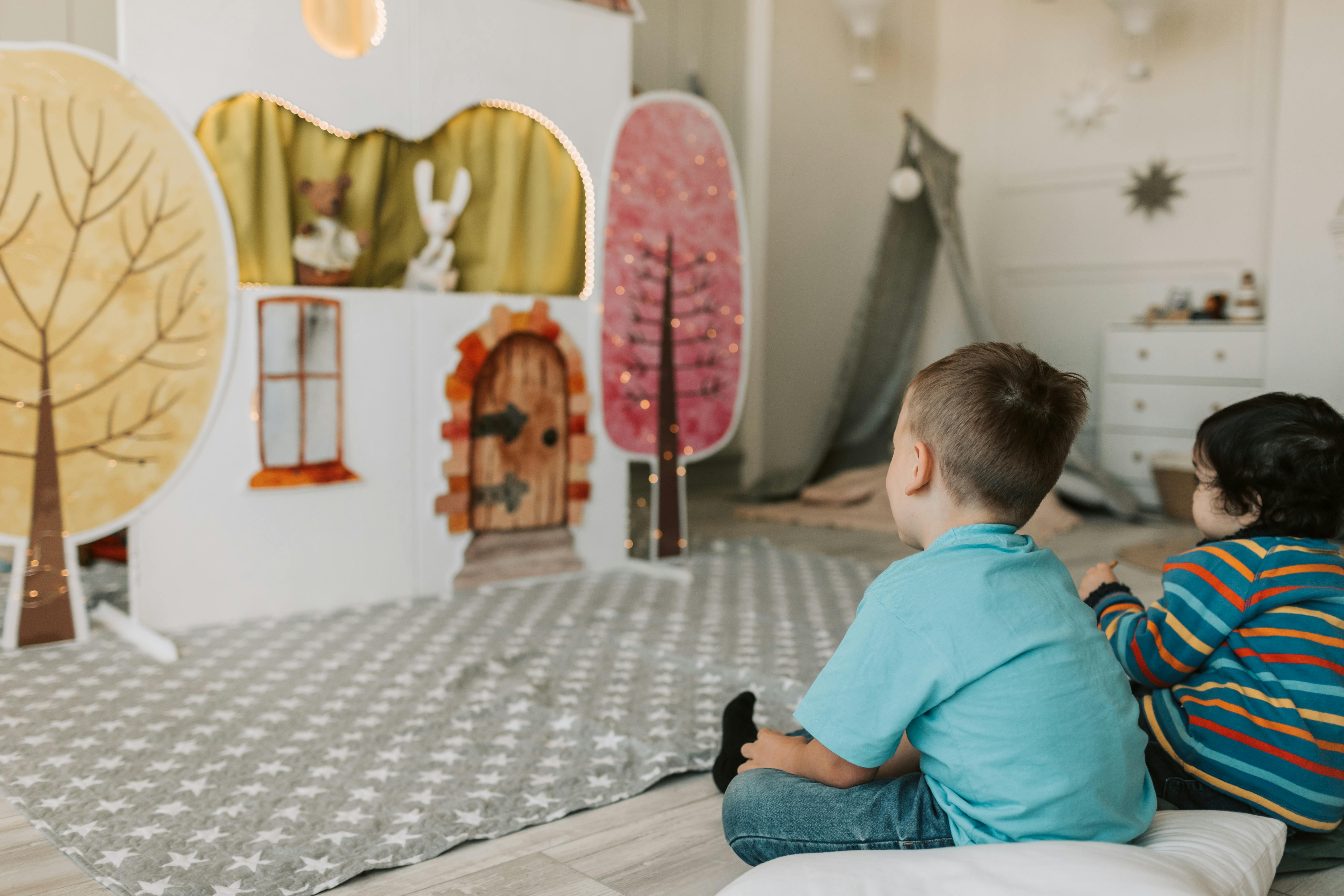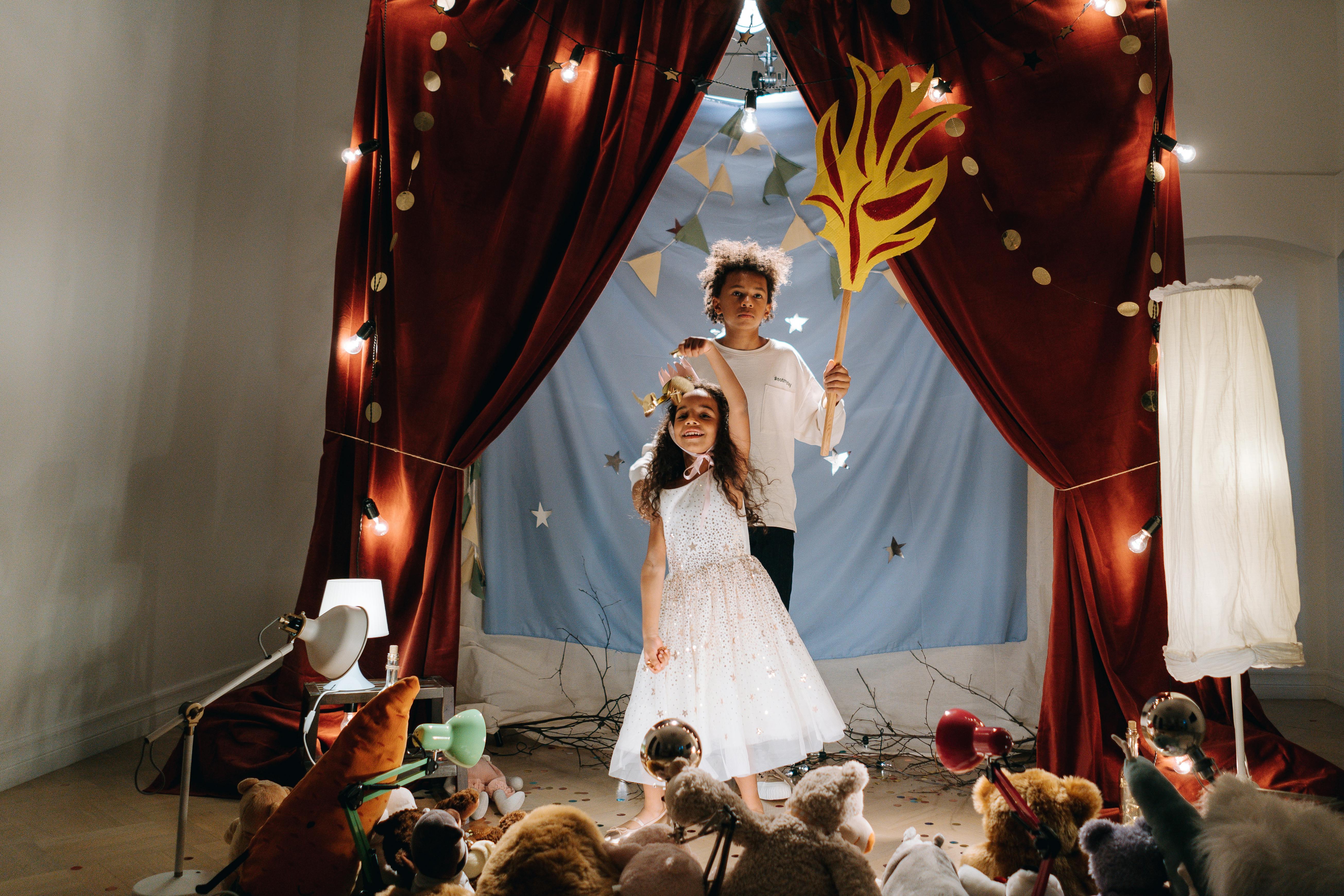On Stage and Behind the Scenes
When the curtains rise and the spotlight hits the stage, something magical happens—especially for children. Whether they’re in the audience, center stage, or behind the scenes, the world of theater offers kids opportunities to grow, learn, and connect in ways that can benefit them for a lifetime.
As school plays, local productions, and community theater opportunities pop up this summer, it’s the perfect time to explore how introducing children to the performing arts can support their development.
Building Confidence and Communication Skills
Acting helps children find their voice—literally and figuratively. Memorizing lines, projecting their voices, and stepping into a character’s shoes build strong verbal and non-verbal communication skills. For shy or anxious children, theater can provide a structured way to express themselves and overcome fears of public speaking or social interaction.
Even kids who work on props or stage crew learn to communicate with peers and instructors, problem-solve in real time, and take pride in their contributions.
Boosting Creativity and Critical Thinking
Theater is more than just performance—it’s storytelling, imagination, and interpretation. Kids are challenged to think creatively: What motivates this character? How should the scene be staged? What color palette best suits the mood?
Behind-the-scenes roles like set design, costume creation, and lighting require planning, innovation, and teamwork—skills that translate to academic and real-world success.
Learning to Take Direction and Grow from It
One of the most valuable (and humbling) lessons theater teaches is how to take correction and direction with grace. Whether an actor is adjusting their delivery or a crew member is refining their timing, kids learn that feedback is not failure—it's growth. They discover how to respond to critique with resilience, adaptability, and a desire to improve. This attitude can carry over into school, sports, friendships, and eventually, the workplace.
Fostering Teamwork and Empathy
Every production is a team effort. From rehearsals to opening night, kids learn to collaborate, respect different roles, and work toward a common goal. This sense of shared accomplishment builds camaraderie and trust.
Acting also encourages empathy, as children step into perspectives different from their own and begin to understand the world through someone else’s eyes.
Learning Responsibility and Discipline
Theater teaches kids to show up, be prepared, and support one another. Whether it’s memorizing lines, being on time for rehearsal, or following cues precisely, the discipline required behind the scenes can help children develop habits that serve them well in school and beyond.
Discovering Hidden Talents
Some children thrive in the spotlight; others shine as creative problem-solvers who design props, manage stage directions, or edit scripts. Exposing kids to theater opens up a wide range of roles—many of which go unnoticed but are essential to every show’s success. It’s a beautiful reminder that there are many ways to belong and contribute.
Celebrating the Payoff: The Thrill of Opening Night
After weeks of rehearsal, collaboration, and creativity, there’s nothing quite like the electric excitement of opening night. As the curtain rises, kids experience the joy of seeing their hard work come to life. That moment—filled with butterflies and pride—teaches them the value of perseverance, preparation, and collective achievement.
How Families Can Get Involved
- Attend a Show: Support a local or school production. Even being in the audience introduces children to the magic of storytelling.
- Sign Up Together: Look for community theater programs, acting classes, or summer camps.
- Volunteer Backstage: Help paint sets, sew costumes, or organize props.
- Talk About Performances: Discuss what your child liked, didn’t like, or would do differently. These conversations deepen understanding and connection.
Whether a child is painting scenery, holding a spotlight, taking stage directions in stride, or belting out a solo, theater offers countless chances to learn, grow, and thrive. So as summer approaches and new opportunities arise, consider letting your child explore the stage—on it, near it, or behind it. The show they join just might be the beginning of something special.



